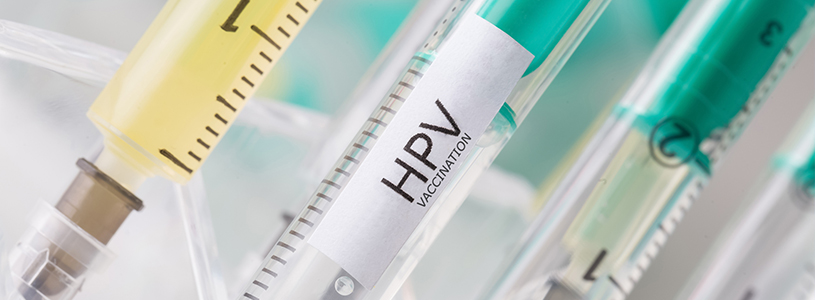NewYork-Presbyterian, Columbia University Medical Center and Weill Cornell Medicine are Among Nation’s Healthcare Institutions to Support Updated HPV Vaccine Recommendations
Jan 11, 2017
New York

NewYork-Presbyterian, Columbia University Medical Center and Weill Cornell Medicine are among the nation’s top healthcare institutions in supporting revised vaccination guidelines from the Centers for Disease Control and Prevention (CDC) for the human papillomavirus (HPV).
The new guidelines from the CDC recommend that children ages 11 to 12 should receive two doses of the HPV vaccine at least six months apart. Adolescents and young adults older than 15 should continue to complete the three-dose series.
According to the CDC, incidence rates of HPV-associated cancers have continued to rise, with approximately 39,000 new HPV-associated cancers now diagnosed each year in the United States. Although HPV vaccines can prevent the majority of cervical, anal, oropharyngeal (middle throat) and other genital cancers, vaccination rates remain low across the United States, with just 41.9 percent of girls and 28.1 percent of boys completing the recommended vaccine series.
Research shows there are a number of barriers to overcome to improve vaccination rates, including a lack of strong recommendations from physicians and parents not understanding that the vaccine protects against several types of cancer.
The original joint statement, published in January 2016, was the major recommendation from a summit hosted at The University of Texas MD Anderson Cancer in November 2015, which brought together experts from the National Cancer Institute, CDC, American Cancer Society and more than half of the NCI-designated cancer centers.
Parents and guardians are encouraged to have their sons and daughters complete a two-dose 9-valent HPV vaccine series that covers nine types of HPV before age 13, or complete a catch-up vaccine series as soon as possible for older children, including three doses in those older than 15. Parents and guardians should talk to their health care provider to learn more about the HPV vaccine and its benefits.
Media Contact:
Office of Public Affairs [email protected]



